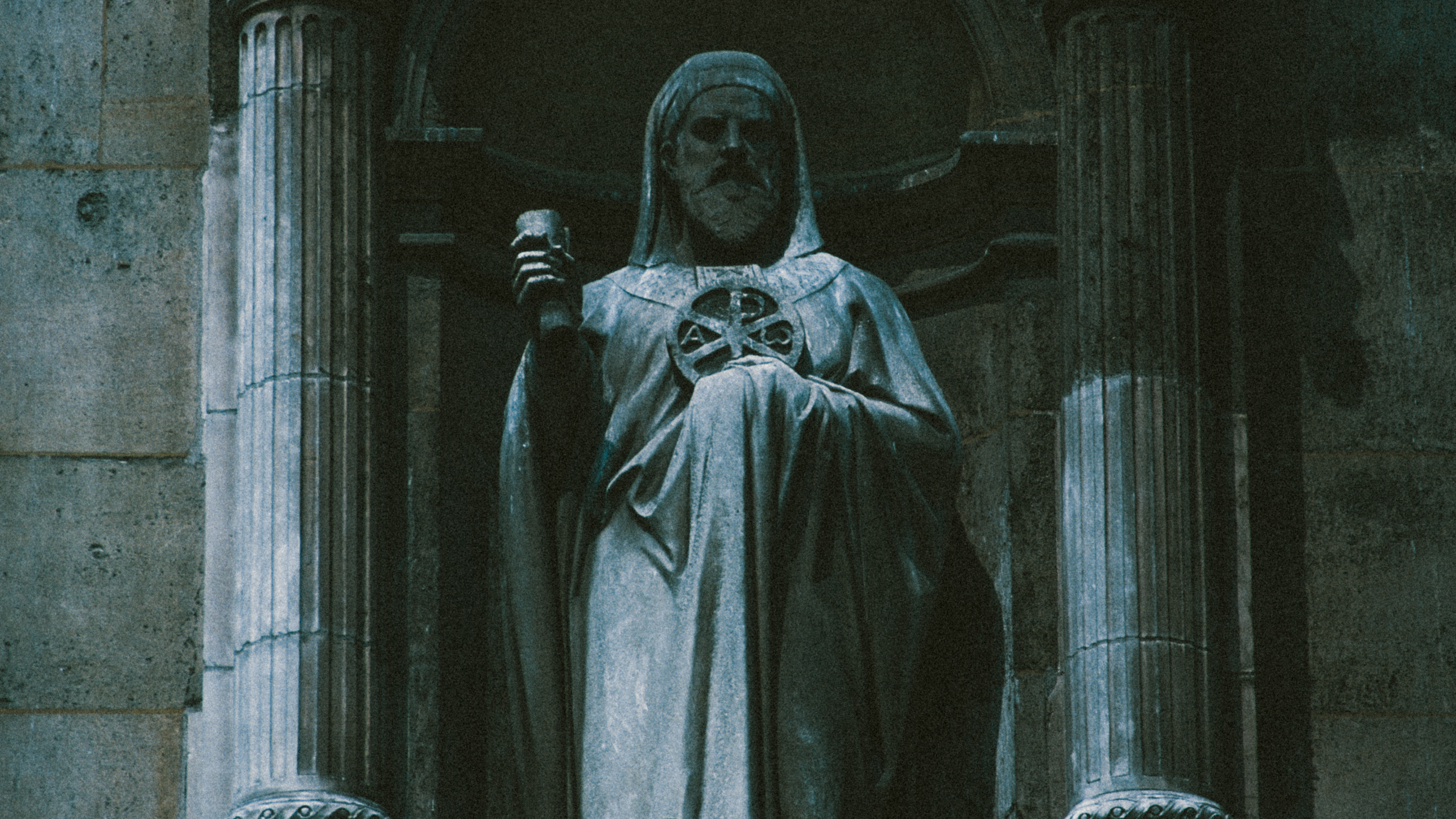The Eternal Word, the Son, was in no way degraded by receiving a human and mortal body. Rather, he deified what he put on; and more than that, he bestowed the gift of his divinity upon our humanity.
—St. Athanasius
St. Athanasius lived when the blood of the Church’s earliest martyrs was still fresh in the memories of Christians—and the intensity of his faith was a tribute to those who had suffered and died rather than recant the apostolic faith. He is described by biographers as being small in stature and stark in appearance, with a body that bore clear signs of his rigorously ascetic life. Athanasius was an Egyptian, his skin dark, eyes deep set and piercing, with a mind as penetrating as his gaze.
He did not suffer fools. His disposition challenges our conception of holiness as being nice and well-mannered. Athanasius was more than willing to fight if provoked, and when the Church was threatened, he did not just speak up—he shouted.
Providence chose him for high office as bishop of the See of Alexandria, but this appointment would not bring him a comfortable existence or easy honors.
The great issue that was dividing the Church at the time was Arianism, a heresy that purported that the Lord Jesus was less than God—not, as our creed professes, “God from God and Light from Light . . . consubstantial with the Father”; instead, Christ was akin to something like the demigods of pagan mythology.
Athanasius would have none of this.
The witness of St. Athanasius clarifies just how much theology matters.
He stubbornly insisted that it is integral to the apostolic faith that God in Christ accepted a human nature, while at the same time in no way compromising his divine nature. This revelation is called the Incarnation, and it is the central claim of the Gospel. God has in Christ assumed our flesh and shared with us the full experience of what it means to be human, even knowing for himself suffering and death.
The implications of this are profound; Athanasius insisted that because of what God had accomplished in Christ, “that which is made of earth can now pass through the gates of heaven.”
In other words, God in Christ is the singular instance in which two natures, human and divine, coinhere in one divine person. Because God has done this, he has effected for us, in Christ, a “marvelous exchange,” accepting a human nature so that humanity could share in his divine nature.
Athanasius knew that a denial of the Incarnation would ultimately result in a wholesale repudiation of the totality of the Church’s faith—indeed, in a refusal of the whole Christian practice of life, which flows from and returns us to the densely textured revelation of God become man in Christ. At times, his uncompromising insistence that the integrity of the apostolic faith regarding the Incarnation be maintained resulted in much suffering and scorn, and it seemed that Athanasius was alone and “contra mundum” (against the world). But Athanasius was unyielding.
If faith in the Incarnation was lost, not only would the Church fall, but the great gift of participation in the divine life that Christ offered to humanity could not be appreciated or received. The stakes were high.
The witness of St. Athanasius clarifies just how much theology matters. How we conceive of the truths of the faith is of pressing importance. The great truths we profess in our creed and celebrate in our liturgy are not to be taken lightly or dismissed as abstractions that are best left to experts. We have a responsibility as disciples to know the Church’s teachings at a measure of depth, or the mission Christ gives us will be imperiled. A disciple cannot be content with a spiritual life that is built on the sandy foundations of platitudes or slogans. Christ comes into this world as a man so that we might know him as God. The Christian spiritual life is a continual intensification of our experience and understanding of this revelation.
The tendency to dilute or deny the truth of the Incarnation has been a temptation in every age of the Church’s life. Some prefer that Christ’s divinity be emptied of all significance and meaning. Others would make his humanity incidental to his revelation. Neither option is congruent with the apostolic faith or expresses who the Lord Jesus truly is “for us and for our salvation.”
The world may prefer another kind of Christ, but if that is the world’s preference, Athanasius invites us to stand with him “contra mundum.”
This piece was originally published on May 2, 2016 on WordonFire.org.
